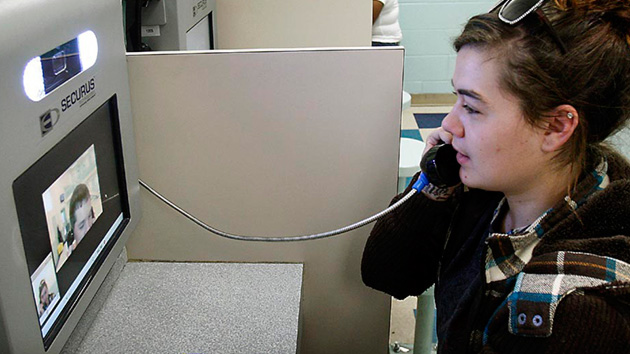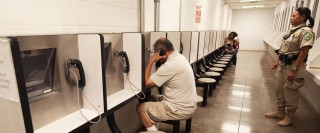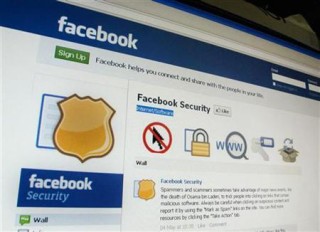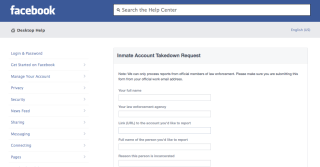Prison Phone Companies Have Found Yet Another Way to Squeeze Families for Cash
The following is an excerpt from Mother Jones.

Jordan Mansfield uses a video visitation system to speak with her husband at the DeSoto County jail in Hernando, Mississippi. – Stan Carroll/AP/The Commercial Appeal
On a chilly Sunday evening in December, a smattering of parents and small children trickled into a graffiti-covered concrete building on the grounds of the DC Jail. It was the last day to visit with prisoners before Christmas Eve, and some of the visitors were wearing Santa hats or bearing presents. The only thing missing was inmates. Three years ago, Washington, DC, eliminated in-person visitation for the roughly 1,800 residents of its jails and installed 54 video-conferencing screens in this building across the parking lot from the detention facility. The screens were installed, at no expense to taxpayers, by a Virginia-based company called Global Tel*Link (GTL), which had scored a lucrative contract for the facility’s phone service.
Now the only way families in the capital can see their loved ones in jail—many of whom have not yet been convicted of a crime and will be shipped out of state if they are—is to sit in front of a webcam for 45 minutes. (Two free weekly visits are allotted.) The video on the laptop-size screens often lags, creating an echo effect. It’s a cold, impersonal way to speak with someone a few hundred feet away. The effect, the Washington Post editorial board charged, has been “to punish prisoners and families.”
Yet video visitation is increasingly popular with correctional administrators lured by promises of lower costs, more revenue, and safer facilities. According to the Prison Policy Initiative (PPI), more than 75 counties and municipalities have replaced face-to-face jailhouse visits with video systems installed by industry giants like GTL and Securus, which are eager to squeeze money out of prisoners.
Practically everyone at prisons and jails agrees that visiting hours are a good thing. Inmates like visitation because it keeps them grounded in a high-stress environment. Administrators like it because it’s an incentive for good behavior. It’s the only way the 2.8 million children with a parent behind bars can see their dad or mom. But face-to-face visits can be expensive and time-consuming for facilities and families alike. Guards must shepherd inmates across campus to the visitation area, and some facilities don’t allow small children in. In many places, families must drive or ride the bus for hours for visits that may last as little as 20 minutes….



